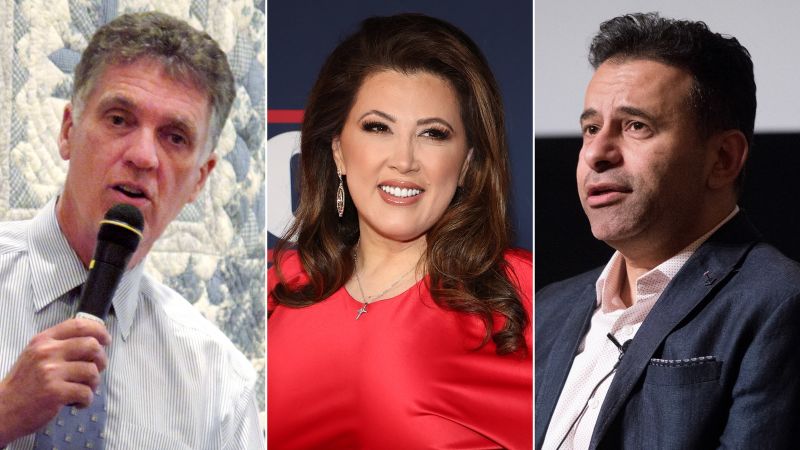On a pivotal Friday evening, news spread regarding President-elect Donald Trump’s selections for significant health leadership roles in the United States government. The appointments include Dr. Janette Nesheiwat, a family physician from New York and a Fox News medical contributor, as the surgeon general; Dr. David Weldon, a former congressman and physician from Florida, to take charge of the U.S. Centers for Disease Control and Prevention (CDC); and Dr. Marty Makary, a surgeon and researcher affiliated with Johns Hopkins University, as the commissioner of the U.S. Food and Drug Administration (FDA). These appointments generated enthusiasm, skepticism, and scrutiny from public health experts, former government officials, and researchers alike, marking a moment of significant interest and potential controversy in American health policy.
The reception of Trump’s health appointments was varied. While some experts lauded Makary and Nesheiwat as reasonable choices, concerns started to emerge regarding Weldon’s history. Health experts voiced apprehensions about Weldon’s legislative background, particularly his previous initiatives that aimed to separate vaccine safety oversight from the CDC. This discontent stemmed from various actions Weldon had taken in the past that could undermine the scientific basis of public health policy. The selection of Robert F. Kennedy Jr., known for his vocal stance against vaccines and his conspiracy theories regarding public health, as the head of the Department of Health and Human Services, further compounded these concerns. Critiques arose suggesting that a clear boundary must exist that separates politics from science, emphasizing the delicate balance needed to navigate public health amid political influences.
Dr. Ashish Jha, the dean at Brown University’s School of Public Health and former White House COVID-19 response coordinator, highlighted an essential question: how would the appointed leaders resolve conflicts between scientific recommendations from agencies like the CDC or FDA and the preferences of the health secretary? Jha stressed that professional disagreements are common in health policy but raised fears that political affiliations might pressure health leaders to abandon sound scientific principles.
Many experts who communicated with CNN expressed cautious optimism about Makary and Nesheiwat, stating they appeared to respect the scientific process, though this respect could sometimes conflict with the views of their superior, Kennedy. The expected pressure from political figures on professionals tasked with making health decisions could pose serious challenges. The historical context of Weldon’s vaccine-related legislation raised alarms about potential risks posed to public health if he were to lead the CDC.
Dr. Jerome Adams, previously a surgeon general under Trump, acknowledged that while Makary and Nesheiwat might lack extensive organizational experience, their competence as physicians could influence scientifically-based policy decisions positively. However, he felt compelled to question Weldon’s past vaccine controversies, urging scrutiny concerning his nomination. The current public health landscape, particularly regarding vaccinations, stands as an urgent concern, especially given the unfortunate repercussions witnessed during the COVID-19 pandemic, where significant vaccine hesitancy exacerbated healthcare crises across the nation.
As experts examined the implications of these appointments, concerns shifted to the broader public health landscape, emphasizing the urgency of addressing misinformation and anti-vaccine movements that have proliferated in recent years. Dr. Peter Hotez remarked on the devastating consequences when citizens chose not to vaccinate during the pandemic and warned of the repercussions for public health if vaccine attitudes do not improve.
In summary, the nominations of Nesheiwat, Weldon, and Makary represent a critical juncture in the governance of U.S. public health policy. While some appointments evoke a sense of cautious optimism, the historical affiliations and political pressures surrounding these selections raise substantial concerns. The actions of these leaders in their respective roles will undoubtedly impact how science is perceived, interpreted, and utilized within the frameworks of public health initiatives in the United States, underscoring the crucial need for science to remain untainted by political narratives. The confirmation hearings for these picks will serve as an essential litmus test, revealing much about their commitment to evidence-based medicine amidst an increasingly polarized health landscape.












